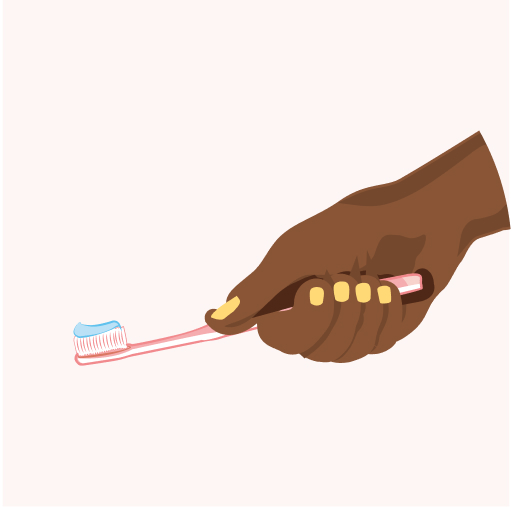
Lifestyle is Our First Defense in Prevention of Chronic Disease
As a recent family nurse practitioner graduate and nurse with 12 years of experience, I have seen the devastation of chronic disease in the African American and Black community. According to a recent article by Pfizer, African Americans are at higher risk for chronic diseases such as heart disease, diabetes, HIV/AIDS, asthma, cancer, and stroke when compared to Caucasians. The same article revealed that younger African Americans are now affected by chronic diseases that are typically seen in other races at an older age. The CDC Vital Signs Factsheet noted that African Americans between ages 18-49 are two times more likely to die from heart disease and 50% between ages 35-64 are more likely to have high blood pressure than their Caucasian counterparts. Higher rates were also seen throughout adulthood with diabetes, stroke, and kidney disease. Pfizer’s research noted that mental health disparities were more evident in this community than others as well. These numbers and facts are devastating because, in 2020, around 12.4 % of the US population identified as African American or Black.
Although the numbers above are representative of the whole community, women specifically are affected with chronic disease at high numbers. An article by the Office of Research on Women’s Health at the National Institute of Health revealed that heart disease, stroke and cancer are ranked as the 1st, 2nd, and 3rd leading cause of death in this group. In addition, diabetes affects one in four women aged fifty- five and in 2010 65% of new HIV infections were found in African American or Black women. Women in our community are more prone to obesity which increases the risk for development of high cholesterol, high blood pressure, heart attack, and diabetes. Black women are more prone to stress for various factors including race, gender, and family dynamics. This increased stress can lead to high blood pressure or heart attacks. It is important for women to be aware of how their lifestyle may affect the development of chronic disease. In addition to lifestyle as one root cause of chronic disease; another explanation of these findings may be a result of undetected or later detection of health conditions, which may lead to shorter life expectancy.
In our current healthcare model, the focus tends to be on medications, but it is very important to understand how our lifestyle contributes to our health and wellness. Lifestyle recommendations are given prior to medication at times, but often these recommendations may not take into consideration many social factors that contribute to chronic disease development. According to the CDC Vital Signs Factsheet, social factors like unemployment, poverty, and medical cost can affect chronic disease prevention. Although some of the external, societal factors may be out of our control, we have more autonomy than we recognize to make healthier lifestyle choices.
As Black women, it is important to prioritize our health. We are taught from an early age to prioritize the needs of others before our own, but this can be detrimental, physically and mentally, if there is no balance in our lives. Lack of balance may lead to increased stress and burn out which can lead to chronic disease. Our lifestyle is the first defense we have against chronic disease. The good news is that we can start at any age and anytime to make healthier lifestyle decisions. A recent article from Cleveland Clinic showed that 80 % of chronic disease are a result of lifestyle factors and discussed five changes that can help prevent chronic disease. Below is a brief discussion of each:

-
Nutrition
Diet and nutrition serve as fuel for our body. What we place in our bodies directly affects how they function. A Mediterranean diet or a full plant-based diet is recommended to prevent, reduce, or reverse chronic disease.
-
Physical Activity
Our bodies were made to move and, the more we move, the better. This is especially important currently since the pandemic required more people to work from home, which led to a decrease in movement and physical activity. It is imperative to exercise your body daily; this can be as simple as doing a quick 10-minute walk every day or starting the day with morning stretches. Once the habit is built, you will be able to build stamina for additional exercise and longer workouts.
-
Restorative Sleep
Sleep is important to our body’s restoration process. As women, we should aim for seven to nine hours of sleep daily. If meeting this range of time is difficult, consider establishing a bedtime routine. This may include limiting caffeine or alcohol closer to bedtime, having an intentional sleep schedule, reducing screen time prior to bed, and creating a calming environment for sleep.
-
Stress Management or Relief
Stress can affect our immune system and lead to chronic diseases. Incorporating a stress management plan can improve our health, physically and mentally. For example, techniques like meditation, mindfulness, and gratitude exercises are healthier skills to manage stress instead of smoking, drinking or increasing food consumption.
The Office of Research on Women’s Health recommends exercising, journaling, and saying no to activities that are not a current priority. Also, finding time for your favorite activities may help with stress management.
-
Social Connection
Being socially connected to others is vital to our mental and physical health. The pandemic demonstrated the importance of social connection. Social connection includes developing and maintaining healthy and loving relationships. Technology can help ensure we stay socially connected if used correctly. For example, we have access to video calling with long distance family and friends.
Of course, there will always be barriers to making lifestyle changes including access to healthy foods, harmful messaging around what you “should” be achieving, and the desire for instant gratification. However, the goal is to be in it for the long term by taking small steps, thinking about the bigger picture, having realistic expectations, and educating oneself. I would encourage anyone reading this article to discuss with their healthcare provider their chronic disease risk, treatment plans for prevention, laboratory tests for disease and screenings for cancer. Don’t be afraid to ask questions concerning your health; it is your right so advocate for yourself. Developing a healthy lifestyle takes discipline and hard work, but as Black women we have the power to decrease our risk and prevent chronic disease through our lifestyle; one decision at a time. We are strong and resilient. Change happens one step at a time, but change first starts with our mind. When we change our minds, our actions follow. You can do it; I believe in you and am standing by you in breaking cycles that have plagued our community for far too long.
More Content
Chronic Diseases
The Heart-Breaking Disease that is Killing Our Black Women
September 17th, 2004 was the worst day...











